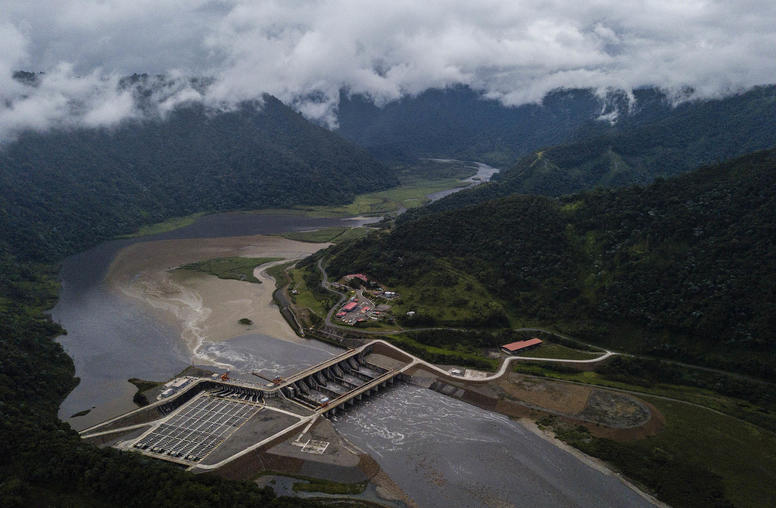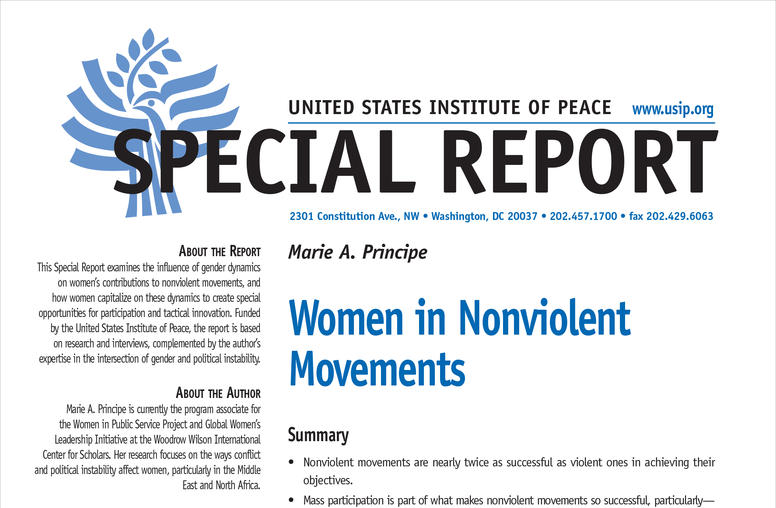Policing, Human Rights and Social Protest in Latin America
How Security Forces Can Both Protect Human Rights and Preserve Public Order Amid Popular Mobilizations
Chile, Colombia and Peru have all experienced massive social protests over economic disparities, corruption, political change and social injustice in recent years. Although the triggers were different in each country, the response was similar: Severe crackdowns by besieged riot police with lethal results for protestors, bystanders and security forces alike. The heavy-handed and often counter-productive response by security forces raises the question of how police can contain demonstrations without brutal repression.
Police have a critical role in maintaining law and order in any society. How and when security forces should use force against demonstrators is a contentious issue globally — and particularly in Latin America, where the security sector is plagued by unresolved authoritarian legacies, public distrust and insufficient resources or training.
On June 1, USIP hosted a conversation with experts who have been at the forefront of regional efforts to reform Latin American security forces. This discussion analyzed legal frameworks for police use of force, discussed best practices and proposed practical polices to reduce violence and ensure accountability.
Continue the conversation on Twitter using #LatAmPolicing.
Speakers
Keith Mines, introductory remarks
Director, Latin America Program, U.S. Institute of Peace
Dr. Gino Costa
Former Peruvian Congressman and Minister of the Interior
Dr. Hugo Frühling
Professor of Government, University of Chile
Dr. Ignacio Cano
Regional Security Expert and Author
Angie Fernández
Researcher, Equitas Colombia
Arturo Matute, moderator
Senior Citizen Security Advisor, U.S. Institute of Peace
Policía, Derechos Humanos y Protesta Social en América Latina
¿Cómo pueden las fuerzas de seguridad proteger los derechos humanos y preservar el orden público durante movilizaciones populares?
Chile, Colombia y Perú han experimentado protestas masivas causadas por inequidades económicas, corrupción, cambio político e injusticia social en años recientes. A pesar que las causas fueron diferentes en cada país, la respuesta gubernamental fue similar: represiones severas por parte de la policía con resultados letales para los protestantes, ciudadanos y las fuerzas de seguridad mismas. La respuesta de mano dura, que usualmente ha demostrado un efecto contrario al esperado por las fuerzas de seguridad, plantea la pregunta de cómo la policía podría contener la protesta sin tener que usar una represión brutal.
La policía tiene un rol critico en el mantenimiento del orden y la aplicación de la ley en cualquier sociedad. Cómo y cuando deben las fuerzas de seguridad usar la fuerza en contra de protestantes es un asunto complicado a nivel mundial – y particularmente en América Latina, donde el sector de seguridad aun sufre de legados autoritarios sin resolver, falta de confianza con el público y tanto recursos como entrenamiento insuficientes.
Acompáñenos en USIP a una conversación con expertos que han estado en la vanguardia de esfuerzos regionales para reformar las fuerzas de seguridad latinoamericanas. Este foro analizará los marcos legales para el uso de la fuerza por parte de la policía, así como las mejores prácticas existentes y propondrá políticas practicas para reducir la violencia y asegurar la transparencia.
Presentadores
Keith Mines, palabras de apertura
Director, Programa de América Latina, Instituto de Paz de los Estados Unidos
Dr. Gino Costa
Excongresista del Perú y exministro del Interior
Dr. Hugo Frühling
Profesor de Gobierno, Universidad de Chile
Dr. Ignacio Cano
Experto en Seguridad Regional y Autor
Angie Fernández
Investigadora, Equitas Colombia
Arturo Matute, moderador
Consejero Senior para Seguridad Ciudadana, Instituto de Paz de los Estados Unidos

